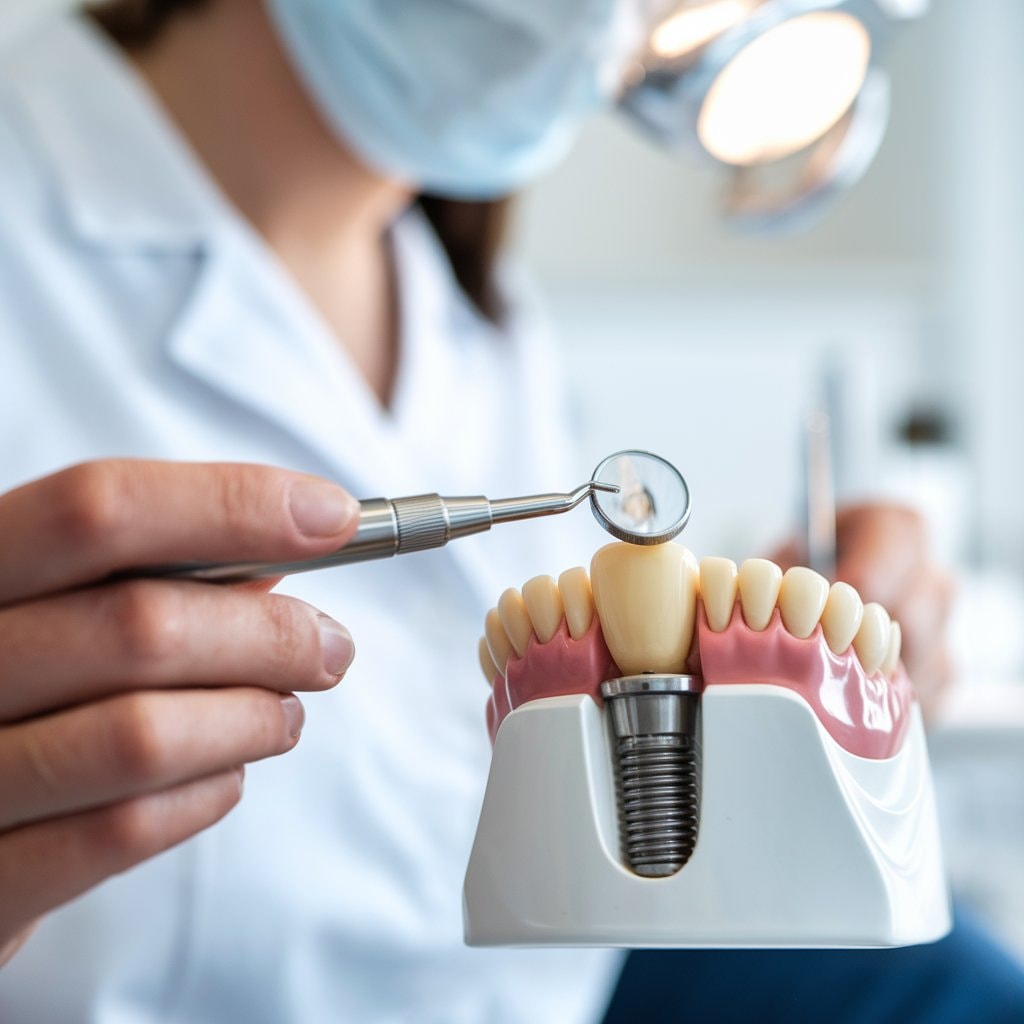Many individuals are concerned about maintaining their gum health helps prevent issues like gum disease and tooth decay. Discovering natural methods for gum cleaning is a priority for those who would rather stay clear of strong chemicals.
It’s essential to know that natural solutions can substantially assist in oral healthcare, combating bacteria that cause gum inflammation. This post provides methods that can be followed at home with resources like coconut oil, tea tree oil, and good oral hygiene practices.
Collectively, these tactics aim for improved teeth and gum health.
Continue reading for tips on achieving healthier teeth.
What are the Best Natural Remedies for Gum Health?
Oil pulling is an exceptional practice for gum health, which involves rinsing your mouth with oil to eliminate damaging bacteria and reduce inflammation. This time-honored method has become recognized for its efficiency in preserving oral health.
Coconut oil, acknowledged for its anti-inflammatory properties, is usually the preferred choice. It combats plaque accumulation along the gum line, protecting against gingivitis and periodontal disease.
Tea tree oil provides another organic solution with potent antiseptic properties that help combat gum bleeding and swelling. By simply integrating a few drops into your daily oral hygiene regimen, you can significantly enhance the health of your gums.
However, only use dental-specific tea tree oil to prevent gum irritation. These treatments underscore the significance of selecting natural methods to preserve and reinforce teeth and gums at home without the need for harsh chemicals.
How Does Oil Pulling Help in Gum Care?
Swishing oil in your mouth, a practice called oil pulling effectively cleans gums and teeth. This method pulls harmful bacteria from the gum tissue, reducing plaque buildup that can lead to inflamed gums.
People usually use coconut or sesame oil for this process. These oils have anti-inflammatory properties that soothe swollen gums and can improve overall gum health.
Oil pulling reduces inflammation and fights bacteria to keep your gums healthy.
Moreover, this technique supports oral hygiene by removing food particles trapped between teeth and along the gum line. Regular oil pulling helps in maintaining healthy gums by preventing the development of conditions like gingivitis or periodontitis, which are common causes of receding gums and tooth loss.
Can Tea Tree Oil Protect Your Gums Naturally?
Tea tree oil serves as a powerful natural remedy for maintaining gum health. This essential oil boasts anti-inflammatory and antimicrobial properties. These features make it effective in reducing gum inflammation and fighting off bacteria that could harm your gums.
People use tea tree oil by adding a few drops to their toothpaste or water for rinsing their mouth. This method helps keep the gums clean and reduces the risk of developing gum disease.
Research indicates that using tea tree oil can significantly improve symptoms of chronic periodontitis. In this common condition, the gums pull away from the teeth, leaving deep pockets vulnerable to infection.
It’s crucial to dilute tea tree oil properly before applying it to avoid irritation Since its concentrated form can be too strong for direct application on delicate oral tissues. Regular use as part of an oral hygiene routine can contribute positively to overall gum health without the harsh chemicals found in some conventional dental care products.
What Role Does Coconut Oil Play in Healthy Gums?
Moving from tea tree oil, another natural remedy gaining attention for gum health is coconut oil. This oil offers a simple yet effective method to maintain healthy gums. It works by attacking harmful bacteria and reducing plaque buildup.
These actions can lead to less gum swelling and bleeding. People use it in a process called oil pulling, which involves swishing the oil around the mouth. This practice has roots in ancient times but remains relevant today for its benefits.
Coconut oil contains lauric acid, known for its anti-inflammatory and antimicrobial properties. When used regularly, it can improve gum health and prevent a gingival recession or receding gums.
The process of using coconut oil doesn’t just clean teeth surfaces; it also reaches deep into the gum pockets where most oral care products cannot go, ensuring comprehensive care of your teeth and gums naturally at home without harsh chemicals.
How to Strengthen Your Teeth and Gums at Home?
Good oral hygiene is the cornerstone of strong teeth and healthy gums. Brushing your teeth at least twice a day with fluoride toothpaste removes food particles and plaque that can lead to gum disease and tooth decay.
Make sure you use a soft toothbrush that doesn’t irritate your gums or damage your enamel. Flossing daily is another essential step, as it gets rid of food bits and plaque between teeth, areas where your brush might not reach.
Taking care of your teeth is about more than just brushing; it involves choosing the right tools and techniques.
Eating a balanced diet plays a significant role in oral health, too. Foods high in calcium strengthen your enamel, while vitamin C boosts gum health. Avoid sugary foods and drinks which can cause cavities.
Regularly rinse with an alcohol-free mouthwash to reduce bacteria further. By adopting these habits, you keep both teeth and gums in top condition.
Why is Good Oral Hygiene Essential for Gum Health?
Maintaining oral health aids in thwarting gum disease, a prevalent issue affecting numerous individuals. Regular brushing and flossing eliminate food residues and plaque that could instigate gum inflammation, leading to receding gums if not addressed promptly.
Proper oral hygiene practices form the bedrock of healthy teeth and gums. They mitigate gum inflammation by combating bacteria accountable for gingivitis, an initial stage of gum disease.
If overlooked, this ailment could escalate to more serious infections, harming the attachment muscles and tissues that secure your teeth.
For those with the goal of sustaining strong teeth and evading issues like bleeding gums or periodontitis, it’s vital to adapt practices like utilizing a soft-bristled toothbrush, integrating anti-inflammatory items like green tea chewing gum in their daily routine, and scheduling regular dentist appointments for professional cleaning.
These steps safeguard your gums but also guarantee overall well-being since poor oral hygiene is associated with heart disease. Moving forward, we’ll discuss how frequently you should brush your teeth for ideal gum health.
How Often Should You Brush Your Teeth for Healthy Gums?
Understanding the importance of good oral hygiene is crucial for maintaining healthy gums. This leads us to how frequently you should brush your teeth. Experts suggest brushing your teeth twice a day is essential for preventing gum disease and promoting overall dental health.
By doing so, you remove food particles and plaque that could damage your gums if left unchecked.
Using fluoride toothpaste strengthens tooth enamel, providing an additional layer of protection against decay. It’s also vital to replace your toothbrush every three to four months or sooner if the bristles are frayed.
A fresh toothbrush more effectively cleans your teeth and safeguards your gums from bacterial infection.
Does Flossing Improve Gum Care?
Flossing holds a vital position in sustaining healthy gums and teeth. It helps in eliminating plaque and food substances that your toothbrush might not reach, primarily in the interdental spaces and under the gums.
Regular flossing lowers the possibility of gum disease by preventing the accumulation of plaque, potentially leading to tartar, a firm deposit removable only by a dental specialist.
Flossing each day substantially diminishes the risk of inflammation or infections in your gums.
Flossing is a crucial aspect of proper oral healthcare as it directly addresses areas where gum disease frequently originates.
Adopting this behaviour not only strengthens your gums but also adds to overall improved breath and healthier teeth. Cultivating the routine of flossing ensures comprehensive measures are being taken for ideal oral hygiene, lessening gum inflammation, and promoting the durability of your natural smile.

What are Effective Home Remedies for Receding Gums?
Natural remedies for receding gums concentrate on lessening irritation and encouraging healing. Aloe vera, recognized for its property to counter inflammation, can relieve distressed gums when used directly on the impacted area.
This gel aids not just in diminishing gum inflammation but also in the restoration of injured tissues. Turmeric gel stands as another potent remedy. Owed to its powerful anti-inflammatory attributes, applying turmeric gel can decisively lessen swelling and discomfort related to receding gums.
For those exploring options to maintain their dental health while treating receding gums at home, adopting green tea extract in your daily routine could bring advantages. Consuming green tea enhances the wellness of your teeth and gums by decreasing inflammation and underpinning the immune system.
These natural methods offer a tender yet effective path to look after your oral health free from harsh chemicals. Transitioning seamlessly from addressing receding gums, grasping the significance of these conventions for overall gum health is paramount.
How Can Natural Remedies Help with Receding Gums?
Natural remedies play a crucial role in combating receding gums. Aloe vera gel, recognized for its anti-inflammatory benefits, can significantly reduce gum inflammation and promote healing.
Applying aloe vera directly to the gums soothes irritation and aids in repairing damaged tissue. This method is especially beneficial as it provides a gentle yet effective way to care for sensitive areas without harsh chemicals.
Another powerful remedy involves swishing oil, like coconut oil, around in your mouth. This technique, called oil pulling, removes toxins from the oral cavity and reduces gum pocket depth.
Coconut oil is rich in unsaturated fat with antimicrobial benefits that fight harmful bacteria linked to gum recession. Regular use of these natural solutions can help maintain healthy gums, prevent further damage, and support overall oral health without relying on invasive procedures.
What are the Best Ways to Treat Receding Gums at Home?
Receding gums can lead to prominent tooth roots and increase the risk of gum disease. Using natural remedies may support healthier gums from home.
- Swish a tablespoon of coconut oil in your mouth for 15-20 minutes daily before brushing to improve oral health through oil pulling.
- Apply tea tree oil gently on the gums. Its anti-inflammatory properties help reduce gum inflammation.
- Rinse with saltwater to soothe inflamed gums. Mix one teaspoon of salt in a cup of warm water and rinse your mouth once a day.
- Drink green tea every morning. The antioxidant properties in green tea may reduce inflammation in the gums.
- Massage your gums gently with aloe vera gel after brushing your teeth to promote healing and prevent receding gums.
- Eat vitamin C-rich fruits like oranges, kiwis, and strawberries to strengthen the immune response and aid in healthy gum repair.
- Chew sugar-free gum after meals to increase saliva production and help protect against decay and gum disease.
- Use soft-bristled toothbrushes to brush twice a day without harshly scrubbing, preventing further damage to your delicate gum tissue.
- Floss your teeth once daily to remove plaque between teeth that a toothbrush might not reach, helping keep your gums strong.
- Refrain from smoking and chewing tobacco, as these habits can be harmful and can worsen gum health significantly.
- Stay hydrated by drinking plenty of water throughout the day, which helps flush out food particles and bacteria from your mouth.
Use herbal extracts like Echinacea or Peppermint as mouthwash by diluting them with water, which may reduce gum inflammation due to their natural anti-inflammatory properties.
Can Mouthwash Assist in Repairing Gums?
Using mouthwash can play a supportive role in repairing gums, especially those that contain anti-inflammatory properties. These special types of mouthwashes help reduce gum inflammation and kill harmful bacteria around your teeth and gums.
They work by getting into hard-to-reach places, aiding in the removal of food particles and plaque that brushing alone might miss. Dental professionals often recommend using a therapeutic mouthwash as part of a comprehensive oral hygiene routine to maintain healthy gums.
Incorporating a therapeutic mouthwash into daily dental care enhances gum health by reaching areas not easily accessed by brushing, says Dr Suresh Mohan Kumar.
To maintain the health of your teeth and gums, it’s essential to understand the importance of regular dental visits.
How to Keep Your Teeth and Gums Healthy?
Brushing your teeth twice a day is a cornerstone of good oral health. This practice removes plaque and prevents cavities, keeping both teeth and gums in top shape. Choosing toothpaste with fluoride can strengthen tooth enamel, making it an essential habit for everyone who wants to maintain their smile.
Flossing daily complements brushing by removing bits of food and plaque that a toothbrush can’t reach between teeth. It helps prevent gum disease by getting rid of particles that could lead to inflammation or infection.
To keep your gums healthy, make flossing part of your nightly routine before bed. Incorporating sugar-free gum into your day also stimulates saliva flow, which naturally cleanses the mouth and protects against decay. It is one way to keep additional care for your oral environment without much effort.
What is the Importance of Brushing Your Teeth Twice a Day?
Brushing your teeth twice a day plays a critical role in maintaining healthy gums and strong teeth. This simple habit removes plaque, a sticky film of bacteria that forms on your teeth.
If you don’t remove plaque regularly, it can lead to tooth decay and gum disease. Brushing in the morning cleans away the bacteria that multiply in your mouth overnight. At night, brushing gets rid of the day’s accumulation of food particles and plaque.
Making sure to use sugar-free gum after meals when you can’t brush can also help clean your mouth.
This routine supports not just oral health but overall well-being, too. Studies have linked poor oral hygiene to various health issues outside the mouth, including heart problems. By keeping this practice consistent, you also ensure that any early signs of potential dental problems are caught soon enough for effective treatment.
Now, let’s explore how you can keep your gums healthy with some easy steps.

How Can You Keep Your Gums Healthy?
Comprehending the significance of twice-daily teeth brushing encourages the next important measure in oral care: preserving gum health. Healthy gums are the foundation for hardy teeth and total oral welfare.
- Opt for sugar-free gum following meals if immediate brushing isn’t an option. Chewing prompts saliva generation, facilitating the washing away of food residues and bacteria.
- Practice efficient oral care daily. This involves using a delicate-bristled toothbrush and fluoride toothpaste for soft cleaning of your teeth and gums.
- Daily flossing accesses regions your toothbrush can’t, eliminating plaque and food caught between your teeth and along the gum border.
- Swish with an anti-inflammatory mouthwash to lower the bacteria responsible for gum ailments. Opt for goods containing natural ingredients recognized for their soothing attributes.
- Consume a balanced diet abundant with vitamins and minerals. Foods such as leafy greens, dairy products, and nuts endorse gum health.
- Hydrate frequently throughout the day to help keep your mouth fresh. Water rinses out food debris and may decrease plaque accumulation.
- Sidestep smoking and tobacco use. These habits can provoke gum illness by influencing the bond of bone and soft tissues to your teeth.
- Diminish stress, as it has a connection with the increased likelihood of periodontal (gum) diseases due to its effect on the body’s immunity system.
- Regular exercise helps improve blood flow, including that in your gums, potentially aiding in their upkeep.
- Regularly arrange dental check-ups every six months or as suggested by your dentist. Professional cleanings are mandatory for removing tartar accumulation and monitoring for symptoms of gum disease.
Implementing these measures results in maintaining your gums healthy and also endorses overall dental health, ensuring that strong teeth remain steadily affixed.
What are the signs of gum disease, and how can you prevent it?
Red, swollen gums that bleed easily are common signs of gum disease. You might also notice bad breath or a bad taste in your mouth that won’t go away. As the condition progresses, your teeth may loosen or separate, and you could experience discomfort when chewing.
To prevent these issues, it’s essential to maintain healthy habits like brushing your teeth twice a day and flossing regularly. Using sugar-free gum can help cleanse your mouth between brushings.
Preventing gum disease also involves regular dental checkups. Dentists can spot early signs of trouble and provide treatments such as flap surgery or root planning if needed. Keeping your gums healthy requires a few remedies beyond daily care, including anti-inflammatory foods that reduce swelling in the gums.
If symptoms appear, acting quickly is crucial to avoid advanced gum problems, which lead to losing teeth or needing partial dentures for missing ones.
When Should You Visit a Dentist for Gum Issues?
You should see a dentist if you notice signs of gum disease. These include gums that bleed easily, red and swollen gums, and bad breath. Pain while chewing and loose teeth are also warnings.
These symptoms suggest your gums need professional care.
A dentist can offer treatments to improve your gum health. They might clean your teeth or suggest special mouthwash. Regular dental checkups help prevent issues with your gums and teeth.
Seeing a dentist twice a year keeps your smile healthy.
What Symptoms Indicate a Need for Professional Dental Care?
Bleeding gums should prompt a visit to the dentist. This symptom often signals gum disease, which is relatively common but needs professional attention. Swelling or redness in the gums also points to potential issues that a dentist should evaluate.
Recurring bad breath or a bad taste in your mouth can indicate infections that require dental care.
Loose teeth are another alarming sign. They suggest that gum disease may have progressed, affecting the stability of teeth. If you spot any of these symptoms, including persistent toothaches or sensitivity to hot and cold, it’s time for a dental checkup.
Early detection and treatment can save your teeth and maintain your overall oral health.
How Can a Dentist Help with Gum Disease?
A dentist plays a crucial role in treating gum disease. They start by assessing the condition of your gums and teeth. This includes checking for signs of inflammation, recession, and any gum pockets that may have developed.
Their goal is to stop the progression of the disease. Dentists use professional cleaning methods such as scaling and root planing to remove plaque and tartar build-up below the gum line.
These procedures help restore healthy gums and prevent further damage.
For advanced cases, dentists might suggest more specialized treatments. Laser therapy, for example, can target infected areas with precision, promoting faster healing without cutting into the gums.
Antibiotic therapy is another option they may use to tackle infection-causing bacteria directly. In every case, dentists provide personalized care plans designed to improve oral health and save your teeth from the effects of gum disease.
Their expertise ensures you get the most effective treatment while also learning ways to keep your gums healthy at home.
Why is Regular Dental Checkup Important for Gum Health?
Regular dental checkups play a key role in maintaining healthy gums. Dentists can spot signs of gum disease early when it’s easier to treat. These visits are crucial for removing plaque and tartar that brushing alone can’t tackle.
Plaque build-up is a common issue that leads to gum inflammation and disease if left unchecked.
Dentists also offer personalized advice on how to clean gums naturally, enhancing your overall oral care routine. During checkups, they might recommend sugar-free gum or highlight the anti-inflammatory properties of certain diets to support gum health.
Regular visits ensure you take care of your teeth and gums effectively, preventing receding gums and keeping your smile strong and healthy.

Conclusion
Maintaining healthy gums and strong teeth is essential for overall well-being. Visiting a dentist regularly plays a crucial role in gum health. Experts can spot symptoms and provide treatments that keep gums from receding further.
They use advanced technology to care for your smile.
Home remedies like oil pulling, using tea tree oil, and practising good oral hygiene contribute significantly to preventing gum disease. These natural methods support the best way to keep your teeth in place, along with reducing inflammation.
For those looking for effective care at home, incorporating sugar-free gum and anti-inflammatory properties into daily routines can make a big difference. Keeping up with these practices ensures your gums stay healthy.


